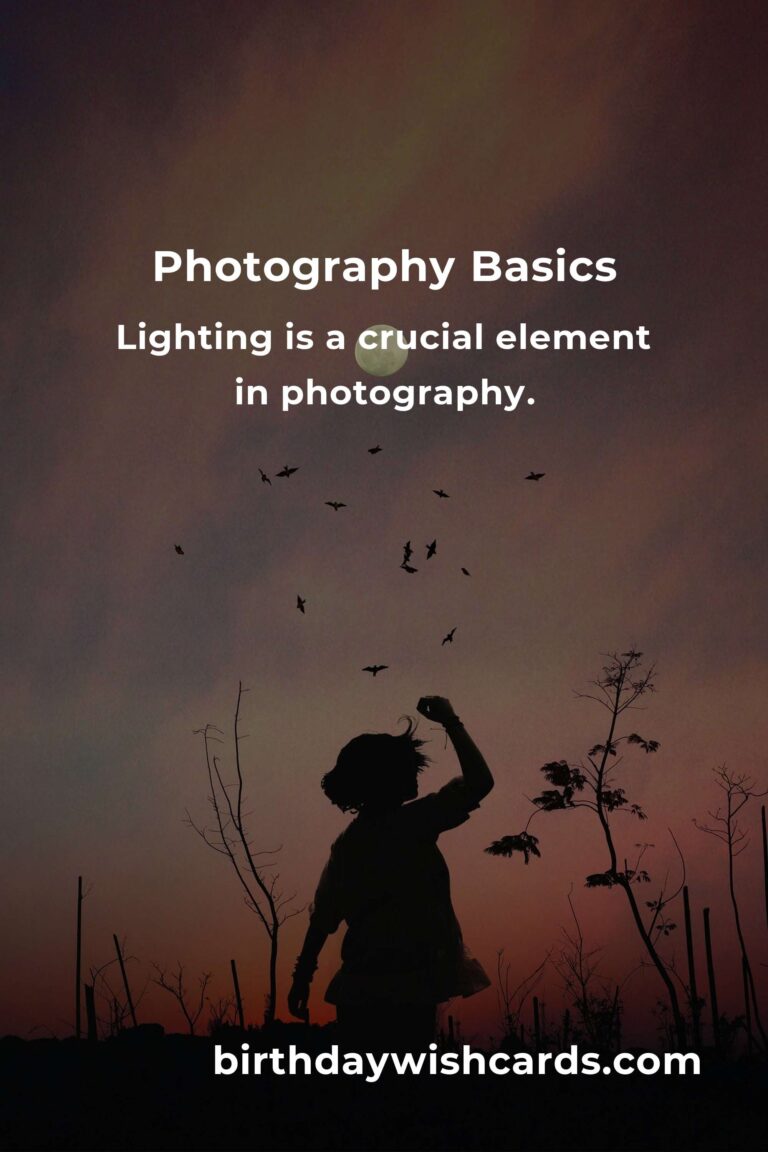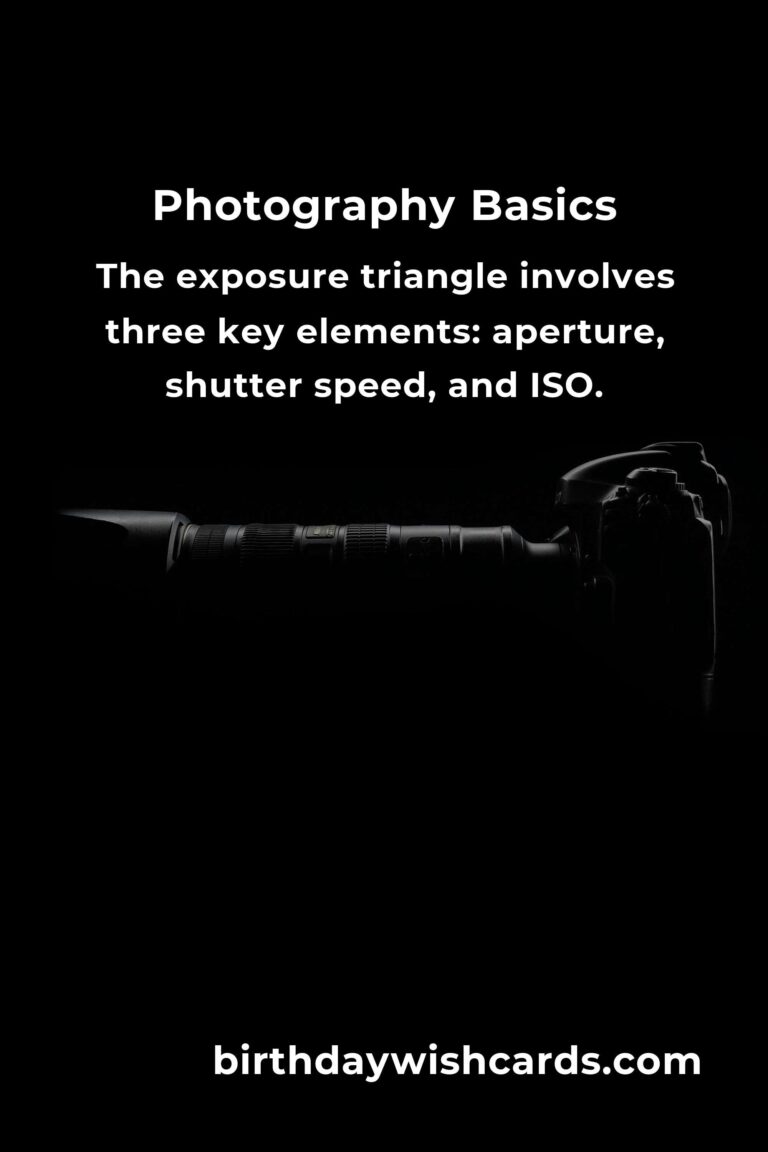
Photography is a captivating art that allows individuals to capture moments and express creativity through images. For beginners, understanding the fundamentals of photography is crucial to developing skills and achieving desired results. This guide will explore essential concepts and techniques that form the foundation of photography.
Understanding Your Camera
The first step in photography is becoming familiar with your camera. Whether you are using a DSLR, mirrorless camera, or even a smartphone, understanding the basic settings and functions will enhance your ability to take better photos. Learn about the different modes, such as manual, aperture priority, and shutter priority, and when to use them.
Exposure Triangle
The exposure triangle is a fundamental concept in photography that involves three key elements: aperture, shutter speed, and ISO. These elements work together to determine the exposure of your image.
Aperture
Aperture refers to the size of the lens opening through which light enters the camera. It is measured in f-stops and affects the depth of field in your images. A larger aperture (smaller f-stop number) results in a shallow depth of field, which is ideal for portraits, while a smaller aperture (larger f-stop number) provides a greater depth of field, suitable for landscapes.
Shutter Speed
Shutter speed determines how long the camera’s shutter remains open to let light in. It is measured in fractions of a second. A fast shutter speed can freeze motion, while a slow shutter speed allows for motion blur, which can be creatively used in long exposure photography.
ISO
ISO measures the camera sensor’s sensitivity to light. A lower ISO value means less sensitivity and is ideal for bright conditions, while a higher ISO is useful in low-light situations. However, high ISO can introduce noise into your images.
Composition Techniques
Composition is the arrangement of elements within a photograph. Good composition helps draw the viewer’s eye into the image and convey the intended message. Here are some basic composition techniques:
Rule of Thirds
The rule of thirds involves dividing the image into a 3×3 grid and placing the subject along the grid lines or at the intersections. This technique creates balance and interest in the composition.
Leading Lines
Leading lines are lines within the image that lead the viewer’s eye towards the main subject. These can be roads, fences, or any natural lines that create a pathway in the image.
Framing
Framing involves using elements within the scene to create a ‘frame’ around the subject. This technique draws attention to the subject and adds depth to the image.
Lighting
Lighting is a crucial element in photography. Understanding how to work with natural and artificial light will greatly improve your photography skills. The golden hour, which occurs shortly after sunrise and before sunset, provides soft and warm lighting that is ideal for photography.
Post-Processing
Post-processing is the final step in photography where you can enhance your images using editing software. While it’s important to get the best possible shot in-camera, post-processing allows for adjustments in exposure, color correction, cropping, and more.
Practice and Experimentation
Like any other skill, photography improves with practice. Experiment with different settings, compositions, and lighting conditions to discover your style and preferences. Don’t be afraid to make mistakes, as they are valuable learning opportunities.
By understanding these fundamental photography concepts, beginners can begin their journey into the art of photography with confidence and creativity.
Photography is a captivating art that allows individuals to capture moments and express creativity through images. The exposure triangle involves three key elements: aperture, shutter speed, and ISO. Good composition helps draw the viewer’s eye into the image and convey the intended message. Lighting is a crucial element in photography. Post-processing is the final step in photography where you can enhance your images using editing software.
#Photography #BeginnerPhotography #PhotoFundamentals #PhotographyTips #CameraBasics













